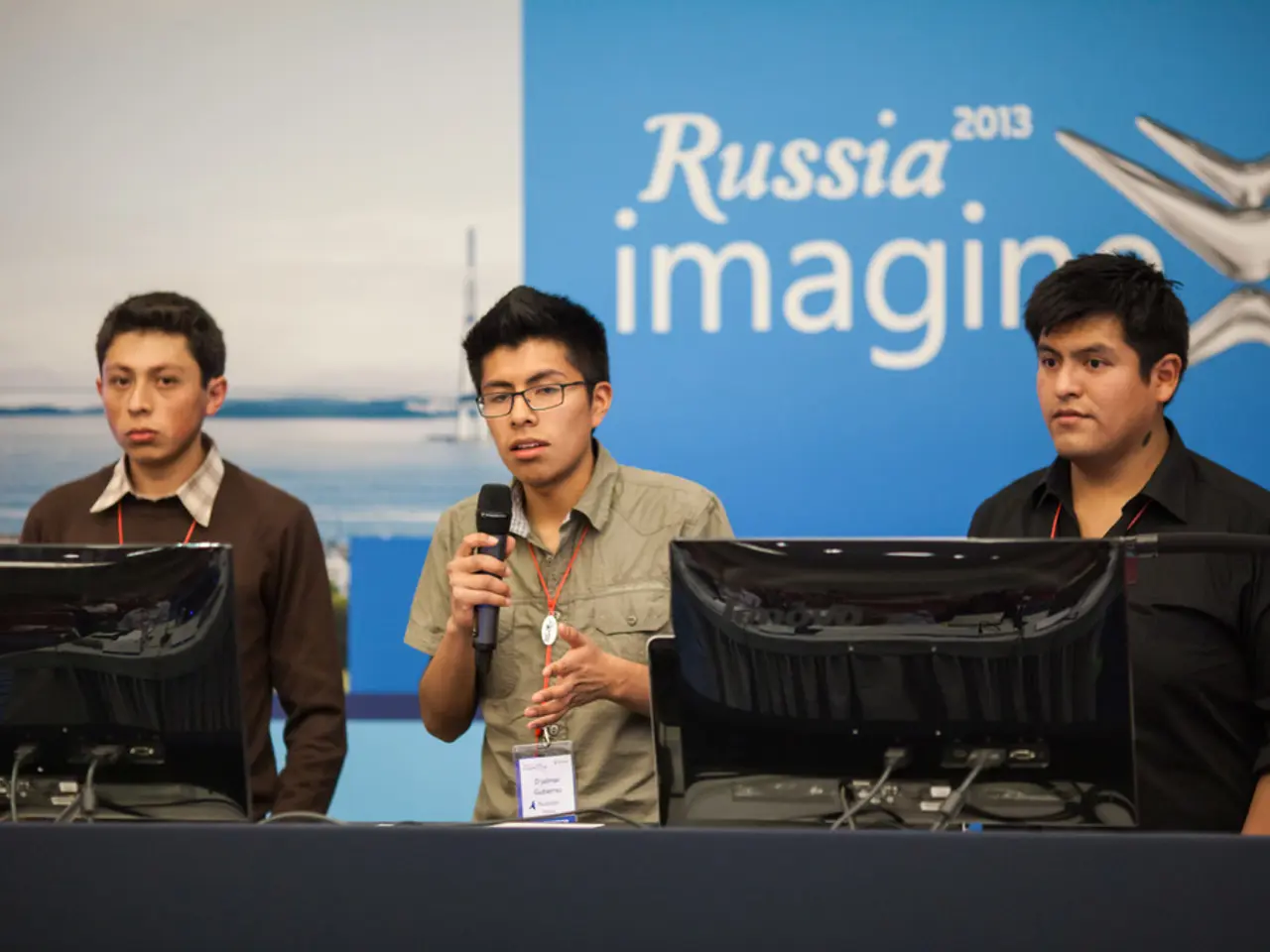Independent Entrepreneur Engaging in Personal Export Activities
Small and medium-sized enterprises (SMEs) in Russia are facing several challenges, but there are also opportunities for growth, as discussed at the Eastern Economic Forum in Vladivostok on September 4.
Ivan Podbereznyak, chairman of the board of MSP Bank, emphasised the need to increase the share of SMEs in the country's GDP, which currently stands at 22%. He believes that small companies need to expand their markets and move to new horizons.
In recent years, the Russian government has implemented several financing measures for SMEs, including special loan programs, subsidies, and credit guarantees. Representatives of SMEs now expect further streamlined administrative procedures, reduced bureaucratic hurdles, and enhanced state support, such as expanded financial instruments and more favorable lending conditions, to strengthen SME development in the near future.
However, high key interest rates, uncertainty about future tax conditions, and bureaucratic red tape at the local level are challenges for small businesses. According to Alexander Kalinin's calculations, businesses as a whole lose approximately 8 trillion rubles annually due to high key interest rates. Discussions about the possible revision of tax breaks for small businesses on social contributions and VAT are causing uncertainty in the sector.
Despite these challenges, small businesses have shown the highest growth rates over the past six years, largely thanks to the Far East, according to Alexander Kalinin, head of "OPORA Russia". State support for small tech companies is seen as more effective in stimulating employment growth than other sectors, according to Ivan Podbereznyak, the head of MSP Bank.
Export support, infrastructure development for cooperation with large businesses and state corporations, and subsidies for innovations and digitalization are main areas of assistance for SMEs, according to the head of the small business unit at PSB Bank, Irina Zhimerina. Speakers noted that small and medium-sized businesses need to improve their efficiency, find new markets, and explore alternative funding sources.
Pavel Snickars, General Director of "T Plus", shared complaints about encounters with bureaucracy even in new trust institutions. However, Boris Titov, Presidential Special Representative, did not express any new concerns about discussions of unfavorable tax changes for businesses in the current paragraph.
Ivan Podbereznyak acknowledged the selective approach to supporting businesses, prioritizing sectors where support has a more noticeable multiplier effect on the economy. He also mentioned that small businesses have other financing sources apart from budget funds, such as raising money on the bond market and using digital financial assets.
The SME Business Confidence Index (RSBI) has been declining since 2025, and its future trajectory will depend on government actions, according to Alexander Kalinin. The RSBI stood at 50 points in July, indicating a borderline between decline and growth.
Overall, the discussions at the Eastern Economic Forum highlighted the need for continued government support and streamlined administrative procedures to help small and medium-sized businesses navigate the challenges and seize the opportunities for growth in the Russian economy.
Read also:
- Peptide YY (PYY): Exploring its Role in Appetite Suppression, Intestinal Health, and Cognitive Links
- Toddler Health: Rotavirus Signs, Origins, and Potential Complications
- Digestive issues and heart discomfort: Root causes and associated health conditions
- House Infernos: Deadly Hazards Surpassing the Flames






